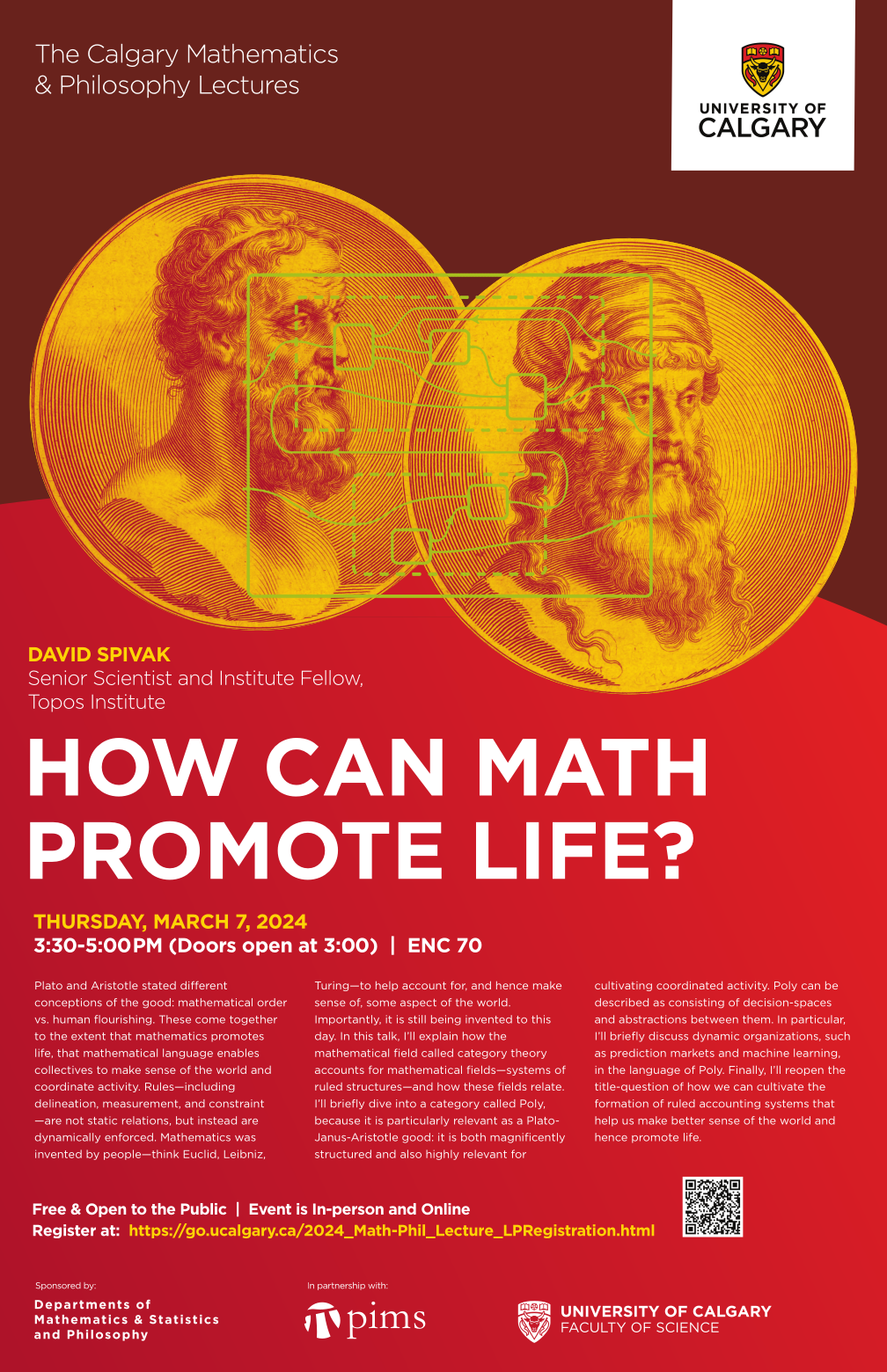How Can Math Promote Life?
David Spivak
Topos Institute
Thursday, March 7, 2024, 3:30
ENC 70 and on Zoom
Plato and Aristotle stated different conceptions of the good: mathematical order vs. human flourishing. These come together to the extent that mathematics promotes life, that mathematical language enables collectives to make sense of the world and coordinate activity. Rules—including delineation, measurement, and constraint—are not static relations, but instead are dynamically enforced. Mathematics was invented by people—think Euclid, Leibniz, Turing—to help account for, and hence make sense of, some aspect of the world. Importantly, it is still being invented to this day. In this talk, I'll explain how the mathematical field called category theory accounts for mathematical fields—systems of ruled structures—and how these fields relate. I'll briefly dive into a category called Poly, because it is particularly relevant as a Plato-Janus-Aristotle good: it is both magnificently structured and also highly relevant for cultivating coordinated activity. Poly can be described as consisting of decision-spaces and abstractions between them. In particular, I'll briefly discuss dynamic organizations, such as prediction markets and machine learning, in the language of Poly. Finally, I'll reopen the title-question of how we can cultivate the formation of ruled accounting systems that help us make better sense of the world and hence promote life.
David Spivak received a PhD in mathematics from UC Berkeley in 2007; his thesis was in algebraic topology. Noticing category theory’s impressive ability to organize and layer abstractions and to interconnect widely different disciplines, he set out to show that mathematics’ most abstract field was also its most applicable. After spending ten years at MIT, funded in part by NASA, the US departments of defense and commerce, and private companies, he co-founded Topos Institute, an independent non-profit research institute that works to shape technology for the public benefit by applying the language of category theory. David's work ranges from database integration to knowledge representation, from materials science to dynamical systems, all with a focus on compositionality and interoperability. He has written three books on applications of category theory.
The University of Calgary’s Mathematics and Philosophy Lecture Series is possible due to the generosity of the Watson Family Fund. Ian Watson, who started his career in geophysics and then later moved into computer science, credits his rich experience and education at the University of Calgary as the reason for wanting to give back to the university.
During Ian’s time at university, he majored in physics with courses in mathematics and philosophy. This unique blend of disciplines allowed him to grasp a broad and more complex view of the world. The Watson family hopes the University of Calgary continues to thrive as an innovative hub of research and development and as a global centre for leading edge science and discovery.
The Mathematics & Philosophy Lectures aim to introduce topics at the intersection of mathematics and philosophy to a general academic audience. They are organized by the Departments of Philosophy and Mathematics, PIMS, the Pacific Institute for the Mathematical Sciences, and the Faculty of Science. The events are free & open to the public; a reception follows.


